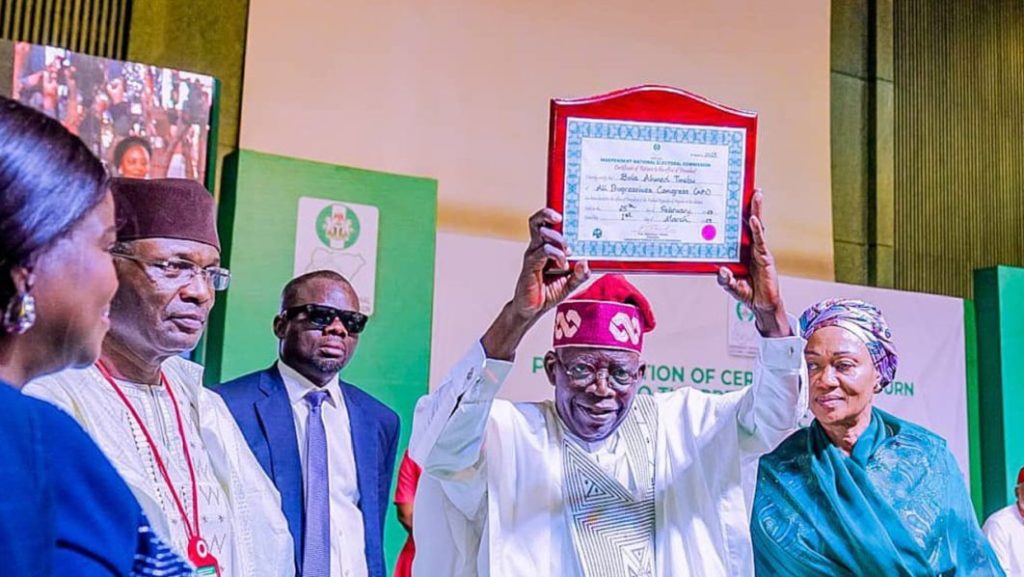The presidential election petition tribunal upheld President Bola Tinubu’s election on February 25.
“Having concluded and decided that all three petitions are devoid of merit, the petitions are hereby dismissed,” the panel stated on Wednesday.
The five-man panel led by Haruna Tsammani ruled that “Tinubu is returned as duly elected president of the Federal Republic of Nigeria” after more than nine hours of deliberating on the petitions and defences of the parties.
The petitions filed by the Allied Peoples Movement (APM), Atiku Abubakar of the Peoples Democratic Party (PDP), and Peter Obi of the Labour Party (LP) challenging Tinubu’s victory were “all devoid of merit,” according to the tribunal.
Tinubu was charged with failing to secure 25% of votes cast in the Federal Capital Territory (FCT) and forfeiting $460,000 in the United States.
They also questioned the Independent National Electoral Commission’s (INEC) failure to transmit election results electronically.
The panel ruled that INEC is free to choose how to transmit election results.
Tsammani cited the January 23, 2023 judgement of a federal high court in suit FHC/ABJ/CS/1454/2022.
He stated that the judgement stands because the LP did not file an appeal.
He also ruled that Obi could not prove that INEC purposefully failed to upload results to the IReV to manipulate the election results in Tinubu’s favour.
Tsammani also stated that the petitioners failed to demonstrate how they were impacted by INEC’s failure to electronically transmit the results.
“The petitioners have failed to prove substantial non-compliance with the provision of the Electoral Act,” he said.
Other rulings
In its ruling earlier, the tribunal said the FCT is not treated specially in the election as it is not superior to any state.
The tribunal said the interpretation of the 25 per cent votes cast in the FCT by the LP is “fallacious”.
“With due respect to counsel to the petitioners, their interpretation of the provision of the constitution, as regards the 25 per cent in Abuja, is fallacious if not completely ludicrous,” the court said.
The court ruled that there is equality of rights regardless of where voters prefer to live in the country.
The tribunal also ruled that the LP failed to demonstrate that Tinubu should have been barred from running for office due to a forfeiture agreement.
Tinubu handed over $460,000 to the US government in 1993 after a Chicago court determined that the money was the proceeds of heroin trafficking.
Tsammani stated in the lead judgement that the evidence (Exhibit P5) presented by the petitioners demonstrated that it was a civil forfeiture case.
Tsammani ruled that the petitioners failed to present credible evidence that Tinubu was arraigned, entered a plea, sentenced, or fined in any criminal suit in the United States.
Tinubu responded to the ruling by saying that it has renewed his desire to unite Nigeria.
“President Tinubu welcomes the judgment of the court with an intense sense of solemn responsibility and preparedness to serve all Nigerians, irrespective of all diverse political persuasions, faiths, and tribal identities,” a statement by Ajuri Ngelale, spokesperson to Tinubu, reads.
